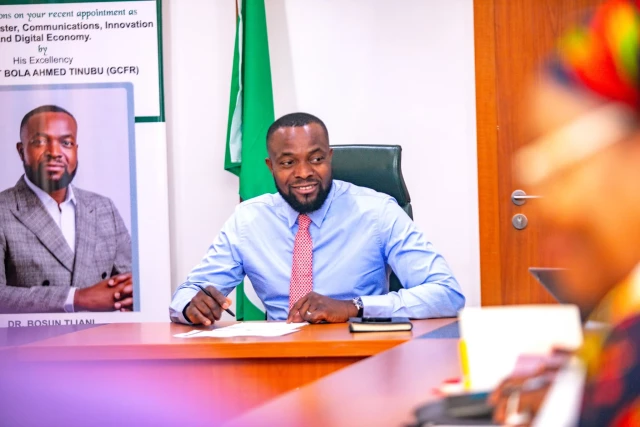The Federal Government on Tuesday, gave the green light for a special purpose vehicle to facilitate the installation of an additional 90,000km of fiber optic cable to ensure widespread internet access throughout Nigeria.
An SPV is a distinct legal entity established for a specific purpose or project. In this case, the SPV will oversee the management, financing, and operations of the fiber optics project.
According to the Minister of Communications, Innovation, and Digital Economy, Bosun Tijani, the project aims to strengthen the national internet infrastructure and maximize the utilization of eight submarine cables already present in Nigeria.
The project is expected to boost Nigeria's fiber optic cable capacity from 35,000 kilometers to 125,000 km, positioning it as the third-longest terrestrial fiber optic backbone in Africa, following South Africa and Egypt.
Tijani highlighted that the ministry has been laying the groundwork for establishing the SPV over the past few months.
The governance and operations of the SPV will be modeled after successful public-private partnership setups in Nigeria, such as NIBSS and NLNG.
The minister elaborated, "This extensive coverage will allow us to fully utilize the advantage of having eight submarine cables already landed in Nigeria and consequently increase the utilization of the data capacity that these cables provide, currently only at 10% usage level."
"Expanding on our existing collaboration with the Broadband Alliance, this enhanced connectivity will help bridge the current gap in internet usage by connecting over 200,000 educational, healthcare, and social institutions across Nigeria, ensuring that a larger segment of our society can benefit from internet access."
Tijani stated that the project aims to ensure that at least 50 percent of the 33 million Nigerians currently without Internet access are included.
He also mentioned that the project is anticipated to have a significant impact on the country's economy, potentially increasing the gross domestic product by 1.5 percent per capita, leading to a GDP growth from $472.6 billion in 2022 to $502 billion in the next four years.
A recent report by Groupe Special Mobile Association revealed that approximately 71 percent of Nigerians lack regular access to mobile internet.
The report highlighted the potential for Nigeria to gain 15 million new Internet users by 2028 with the implementation of appropriate policies. It emphasized that achieving a comprehensive digital transformation of the Nigerian economy relies on universal access to digital connectivity.
The report also pointed out that while 29 percent of Nigerians use mobile internet regularly, there is still untapped potential, with 71 percent not accessing these services on a regular basis.
It emphasized the need for an improved policy environment to enhance industry coverage and adoption, potentially leading to 15 million additional internet users by 2028. However, the sector faces challenges related to infrastructure deployment.




















